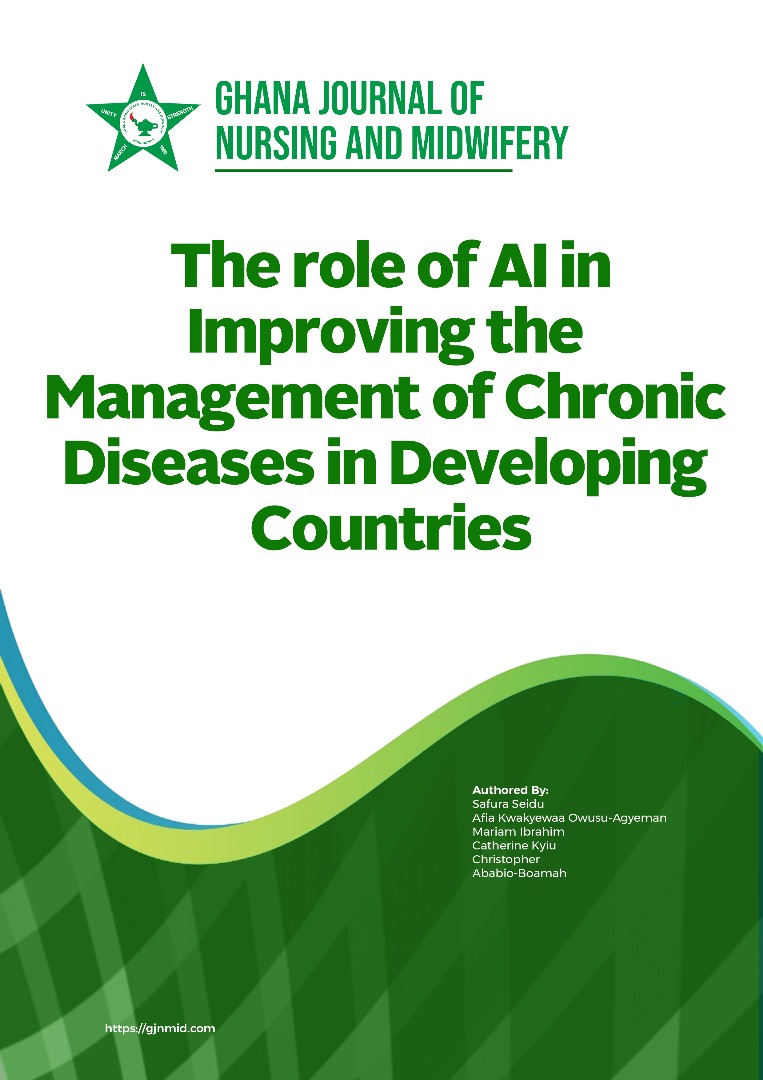The role of AI in Improving the Management of Chronic Diseases in Developing Countries
Main Article Content
Abstract
This paper examines the role of Artificial Intelligence (AI) in improving the management of chronic diseases in developing countries. Through a comprehensive analysis of current literature and case studies, we explore the potential of AI to address healthcare challenges in resource-limited settings. The study employs a multi-faceted methodology, including a systematic literature review, case study analysis, and evaluation of AI algorithms. Our findings reveal significant advancements in AI applications for diabetes management, cardiovascular disease prediction, and diabetic retinopathy screening. We discuss the effectiveness of AI interventions in early detection, treatment planning, and patient self-management, while also identifying key barriers such as technical challenges, regulatory gaps, and socioeconomic factors. The paper proposes a framework for sustainable AI integration in healthcare systems of developing nations, emphasizing responsible implementation, capacity building, and equity considerations. Our recommendations provide practical guidance for policymakers, healthcare providers, and researchers to harness AI's potential in chronic disease management. This study contributes to the growing body of knowledge on AI in global health, offering insights into the opportunities and challenges of implementing these technologies in developing country contexts.
Downloads
Article Details

This work is licensed under a Creative Commons Attribution 4.0 International License.
Copyright (c) 2024
This work is licensed under a Creative Commons Attribution 4.0 International License.






